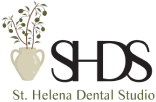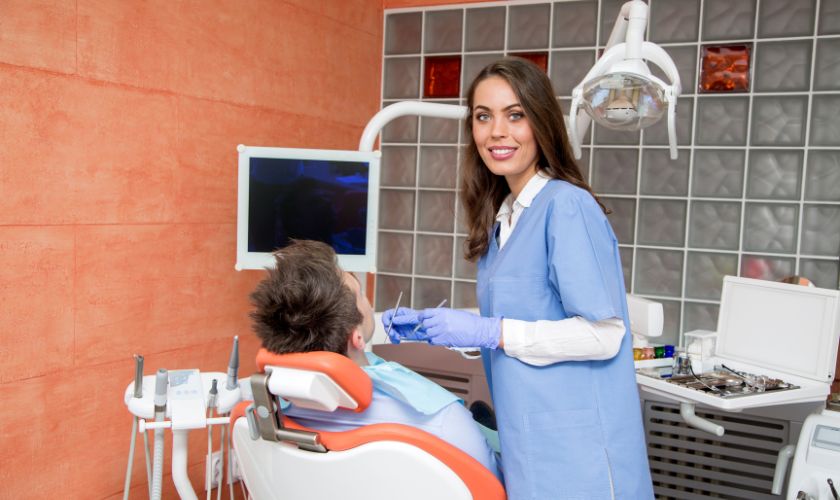New Patients Are Welcome!
In Case of Dental Emergency: Quick Tips for Immediate Action

Dental emergencies can be distressing and often require prompt attention to alleviate pain, prevent further complications, and preserve oral health. Whether it’s a sudden toothache, a knocked-out tooth, or a broken dental restoration, knowing how to take immediate action can make a significant difference in the outcome. In this blog post, we’ll provide quick tips for immediate action in case of a dental emergency, offering guidance on what to do before seeking professional help.
Toothache:
A sudden toothache can be debilitating, making it difficult to focus on anything else. Immediate action is crucial to alleviate the pain. Start by gently flossing around the affected tooth to remove any trapped debris. Rinse your mouth with warm water, and consider taking over-the-counter pain medication if needed. Avoid placing aspirin directly on the gums, as this can irritate them. If the pain persists, it’s essential to schedule an appointment with your dentist promptly.
Knocked-Out Tooth:
A knocked-out tooth requires quick action to have the best chance of successful re-implantation. Hold the tooth by the crown (top part), avoiding contact with the root. Rinse the tooth gently with milk or saline solution to remove dirt but do not scrub or touch the root. If possible, try to reinsert the tooth back into the socket. If reinsertion is not feasible, place the tooth in a container of milk or saliva and seek immediate dental attention. Time is of the essence in preserving a knocked-out tooth.
Broken or Chipped Tooth:
A broken or chipped tooth can cause discomfort and requires immediate attention. Rinse your mouth with warm water to clean the area. If there is bleeding, apply gentle pressure with a clean gauze or cloth. If possible, save any broken tooth fragments. It’s crucial to see your dentist as soon as possible for an assessment. Avoid using the affected tooth for biting or chewing until it is properly evaluated and treated.
Lost Dental Filling or Crown:
Losing a dental filling or crown can expose the affected tooth to sensitivity and potential damage. If you lose a filling, you can use over-the-counter dental cement or sugar-free gum as a temporary measure to cover the cavity until you see your dentist. For a lost crown, try to reposition it over the tooth using dental adhesive, toothpaste, or temporary dental cement available at pharmacies. However, it’s crucial to see your dentist promptly to ensure proper reattachment and avoid complications.
Soft Tissue Injuries:
Injuries to the soft tissues of the mouth, such as the lips, tongue, or cheeks, can result in bleeding and discomfort. Gently clean the affected area with warm water and apply a clean cloth or gauze to control bleeding by applying gentle pressure. If bleeding persists, it’s important to seek immediate medical attention. Avoid using aspirin or ibuprofen directly on the injured area, as it may increase bleeding.
Jaw Injury or Dislocation:
If you suspect a jaw injury or dislocation, it’s crucial to seek emergency medical attention. In the meantime, try to keep the jaw stable by supporting it with a hand or a cloth. Avoid attempting to realign the jaw yourself, as this should be done by a medical professional. Apply a cold compress to reduce swelling and alleviate pain while awaiting medical assistance.
Abscess or Swelling:
Dental abscesses can cause severe pain and swelling. Rinsing your mouth with warm saltwater can help alleviate discomfort temporarily. However, it’s essential to see your dentist promptly for proper diagnosis and treatment. Avoid applying heat to the swollen area, as it may exacerbate inflammation. Over-the-counter pain relievers may provide temporary relief until you can receive professional dental care.
Object Caught Between Teeth:
If an object is caught between your teeth, attempt to gently remove it using dental floss. Avoid using sharp or pointed objects, as they may cause injury or damage to your teeth and gums. If flossing doesn’t work, see your dentist for assistance. Do not use excessive force, as it may worsen the situation.
Bleeding Gums:
Persistent bleeding gums, especially during or after brushing, may indicate gum disease or other dental issues. Rinse your mouth gently with warm water and apply gentle pressure to the bleeding area using a clean cloth or gauze. Use an antiseptic mouthwash to help control bacteria. If bleeding persists, schedule an appointment with your dentist for a thorough examination and appropriate treatment.
Prevention is Key:
While these tips guide immediate actions during a dental emergency, prevention is always the best strategy. Maintain good oral hygiene practices, attend regular dental check-ups, and be mindful of potential risk factors such as biting on hard objects or participating in activities that may lead to dental injuries. A proactive approach to oral health can help reduce the likelihood of emergencies.
In case of a dental emergency, quick and appropriate action can make a significant difference in the outcome. These tips guide addressing common dental emergencies before seeking professional help. However, it’s crucial to remember that these measures are temporary solutions, and immediate dental attention is necessary for a proper diagnosis and comprehensive treatment. If you experience a dental emergency, contact St. Helena Dental Studio promptly to ensure the best possible outcome for your oral health. Their experienced team is equipped to handle a wide range of emergencies and will prioritize getting you the care you need.




